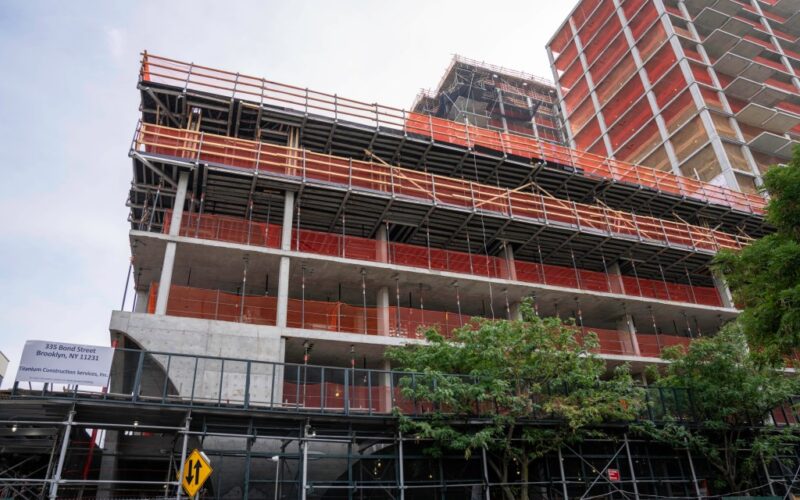Ask New Yorkers what keeps them up at night, and many will say the same thing — the cost of housing. In a recent survey, more than half the respondents said they might have to leave the city because of it. This is not just a statistic, it’s a warning sign.
A new report from the Partnership for New York City, “Excessive Litigation is Driving New York’s Affordability Crisis,” sheds light on a lesser known factor behind rising housing costs, our outdated legal system. New York’s litigation costs are 67% higher than the national average, driven by excessive lawsuits, inflated settlements, and a legal environment that encourages fraud. These costs ultimately fall on tenants, homeowners and developers.
As the new president and CEO of the New York State Association for Affordable Housing (NYSAFAH), I hear from developers across the state who are struggling to move projects forward, not because of a lack of will, but because housing costs are spiraling out of control, starting with the cost of insurance.
A major culprit is New York’s “Scaffold Law.” Passed in 1885, long before the existence of modern worker protections like workers’ compensation, the law imposes “absolute liability” on property owners and contractors for gravity-related injuries, even when the worker is at fault. New York is the only state in the country still using this strict liability standard. All others have adopted comparative negligence, which considers the actions of all parties involved.
It’s simple — if a worker disregards safety protocols or is under the influence of drugs or alcohol, that should factor into the legal outcome. Under the Scaffold Law, even in those cases developers bear 100% of the liability. This isn’t about avoiding responsibility, it’s about fairness, accountability, and protecting the long-term viability of affordable housing.
The good news is this can be fixed, but it requires action. As we head into the 2026 legislative session in Albany, state lawmakers must prioritize passing a comparative liability standard to replace New York’s outdated Scaffold Law. This single reform could significantly reduce insurance costs and unlock stalled affordable housing projects.
If the state fails to act, the federal government might. The Infrastructure Expansion Act of 2025 (H.R. 3548), introduced by Rep. Nick Langworthy would preempt New York’s Scaffold Law for federally funded infrastructure and transportation projects, including affordable housing. While limited in scope, it sends a clear message that the cost of inaction is too high, and it’s holding back progress.
Scaffold Law reform is just one piece of the puzzle. Other needed reforms include cracking down on fraudulent injury claims and staged accidents, which are also driving up insurance costs across the board.
In some parts of the city, liability insurance now costs more than $2,400 per unit, a burden that gets passed on to renters. General liability insurance represents close to 85% of those premiums, reflecting the frequency of lawsuits and the high dollar settlements. The market for liability insurance in some boroughs has become so thin that building owners are struggling just to find coverage.
We need targeted legislation like S.5231/A.3800, sponsored by state Sen. Leroy Comrie and Assemblyman David Weprin, to curb staged accidents and insurance fraud. These fraudulent claims are not only criminal, but they directly drive up the cost of building affordable housing. Insurance fraud isn’t a victimless crime, it affects every renter, homeowner, and taxpayer in New York.
Affordable housing is not just a necessity. It is critical to the city’s economic stability and social fabric. Without urgent reform, we risk losing thousands of affordable units, pushing more residents out and deepening inequality across the city. Every dollar wasted on excessive litigation and soaring insurance premiums is a dollar taken away from building the homes that New Yorkers desperately need. This is not just about finances. It is about preserving the strength and inclusivity of our communities.
New York’s housing crisis isn’t an unavoidable fate. It is the result of choices we still have the power to change. By reforming the Scaffold Law and tackling fraud, we can bring fairness back into the system and unlock the affordable housing that our state so urgently needs.
The path forward is clear. It is time for lawmakers to act decisively before opportunity slips further out of reach for millions.
Rivera is president and CEO of the New York State Association for Affordable Housing (NYSAFAH) and previously represented parts of the East Side of Manhattan in the City Council.








